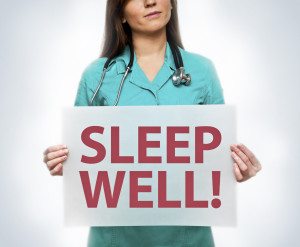 While residents are working fewer hours under ACGME guidelines—how much more sleep are they really getting? At many institutions, the amount of work assigned to residents is unchanged. Residents simply have to get more done in fewer hours, do it after hours or under-report the actual number of hours worked.
While residents are working fewer hours under ACGME guidelines—how much more sleep are they really getting? At many institutions, the amount of work assigned to residents is unchanged. Residents simply have to get more done in fewer hours, do it after hours or under-report the actual number of hours worked.
At other institutions, hospitalists, nurse practitioners and physician assistants have been brought in to pick up some the work formerly assigned to residents, but faculty find themselves pitching in.
“Faculty hours have definitely gone up,” says Alisa Duran-Nelson, MD, associate professor of medicine at the University of Minnesota. “Doctors know they’re too tired, but patient care doesn’t stop.”
Administrators Turning a Blind Eye?
Many healthcare organizations endorse work/life balance for their physicians, but are caught between a rock and a hard place when it comes to staffing during a growing physician shortage. Is a sleep-deprived physician better than no physician at all?
Going 24 hours without sleep, or a week of sleeping four or five hours a night, induces an impairment equivalent to a blood alcohol level of .1%—a concentration that qualifies as “too drunk to drive.”1
While no organization would knowingly allow a physician come to work drunk—they’ll appreciate the professionalism and dedication of a physician who’ll respond to an emergency when seriously sleep-deprived.
In a 2006 article for the Harvard Business Review, Dr. Charles A. Czeisler, the Baldino Professor of Sleep Medicine at Harvard Medical School, referred to a nonsensical “culture of machismo sleeplessness.”2
Physician Invincibility: A Convenient Myth
“Given the nature of their training, many physicians are convinced they’ve somehow ‘overcome’ their need for sleep,” explains Liz Ferron, vice president of clinical services for VITAL WorkLife, “They point to the many years they’ve practiced without problem as proof that they’ve somehow conditioned themselves to operate without sleep.”
The pride in sleep-deprived performance apparently remains deeply engraved in the medical school culture. On an online forum3 for student doctors, a medical student recently posted the question:
“I can't function if I don't take a 30 minute nap during the day. Will this be possible as a resident, fellow or attending?”
Here’s a sampling of the responses he got:
“Forget naps, the worst part about residency is finding someone to put your juice in a sippy cup, pick out your clothes the night before, and read a good rendition of ‘Bernstein Bears’ to get you to sleep at night.”
“You should move to rural Spain. Or Mexico. Let's go with Mexico.”
“Intern year I would often get home, plop down on the couch, close my eyes briefly in the hopes of a quick power nap...and then wake up covered in drool the next morning with my alarm going off.”
The student responded saying that he hoped sleeping well, eating a healthier diet and exercising during his residency would promote well being. He got just one response:
“Ha ha good luck with that.”
A sense that good sleep is a luxury not available to physicians in practice is also evident to Ferron, “When I ask physicians suffering from depression or anxiety about their sleep habits, they just laugh. They seem to think a good night’s sleep is a crazy pipe dream instead of one of life’s most basic needs.”
Sleep & Lifestyle: Accountability
In an era when physicians are under tremendous stress and in greater demand than ever before, administrators have to take steps to ensure that they’re doing more than “encouraging” physicians to get sufficient sleep and work/life balance.
In the same HBR article cited earlier, Dr. Czeisler observed that top executives now have a critical responsibility to take sleeplessness seriously, “If you want to raise performance—both your own and your organization’s—you need to pay attention to this fundamental biological issue.”
Ferron also notes remediating chronic sleep deprivation requires lifestyle changes few physicians can make without very specific plans and defined accountability. “This is an area where physician peer coaching and counseling can be tremendously helpful.”
Sources:
1 Williamson AM, Feyer AM. Moderate sleep deprivation produces impairments in c ognitive and motor performance equivalent to legally prescribed levels of alcohol intoxication. Occup Environ Med. 2000;57:649–55
2 Fryer, Brownyn, “Sleep Deficit: The Performance Killer, A Conversation with Charles A. Czeisler” Harvard Business Review, October 2006
3 http://forums.studentdoctor.net/threads/do-you-have-time-to-nap-during-residency-and-beyond.1056027/ (Retrieved March 20,2014)


